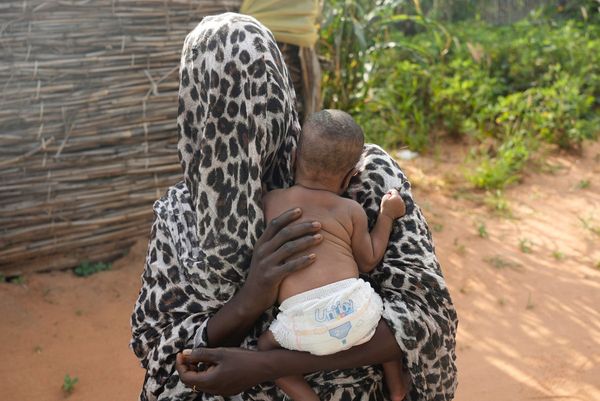
A Nigerian nurse who was kidnapped by Islamic State-affiliated jihadists has escaped after six years in which she was forced into two marriages, it was announced Friday.
The Nigerian military presented Alice Loksha, who had been a health worker for the UN children's agency UNICEF in the northeast of the country, to reporters at a military base in the northeastern city of Maiduguri.
Loksha was taken on March 1, 2018 when fighters from the Islamic State West Africa Province (ISWAP) group staged a deadly raid on a humanitarian camp housing 60,000 displaced people.
Three more UNICEF health workers were killed in the attack, along with eight Nigerian soldiers.
Loksha was taken along with two Nigerian midwives -- Saifura Khorsa and Hauwa Liman -- who had been working for the International Committee of the Red Cross (ICRC).
The ICRC workers were later murdered and grisly videos of their deaths were released by their captors. ISWAP said they killed the pair because they were Muslims who -- in the jihadists' view -- should have known the consequences of working for international agencies.
Loksha, they said, would be spared and turned into a sex slave because she is Christian.
On October 24 this year, Loksha managed to escape her captors from a camp in Dogon Chukwu island in Lake Chad, Nigerian army Major General Kenneth Chigbu told reporters.
Five days later she contacted reached Nigerian troops in the town of Geidam in neighbouring Yobe State, he said.
Another Nigerian woman, Faina Ali Kelawos, who was held by ISWAP for two years, also managed to escape and appeared at the news conference.
While in captivity, Loksha was at different times forced to "marry" two separate ISWAP commanders and had a child from the first marriage, Chigbu said.
The child's father, a jihadist commander identified as "Abu Omar", was killed in a gunfight with Nigerian troops two years ago, the general said.
After Abu Omar's death, Loksha was forced into a new marriage with another ISWAP commander, Abu Simak, who was later banished by his comrades for an unknown reason.
Loksha has been married and already had two children before her capture. A UN source in the region told AFP that they were trying to resolve "complications" surrounding her future.
"We have a delicate situation in our hands because her husband had remarried after her kidnap, thinking she was already dead, and now here she is with another man's child," the source said.
The source said they were worried about the stigma Loksha and her son would face if she "eventually returns to her family who may hardly welcome the child into their fold."
The ISWAP split from the notorious Nigerian insurgents Boko Haram in 2016 over ideological differences and has since become the dominant jihadist group in the region.
The two rival groups are infamous for mass kidnappings, especially of women and children who are often forced to become suicide bombers or sex slaves.
The 15-year-old conflict has killed over 40,000 people and displaced around two million in the northeast of Africa's most populous country, according to the United Nations.
The violence has also spilled into neighbouring Niger, Chad and Cameroon, promoting a military coalition to fight the militants.










